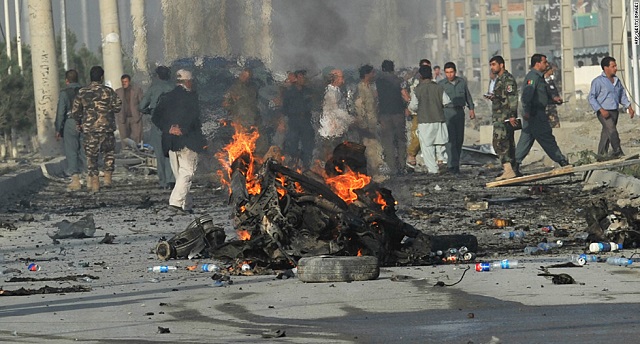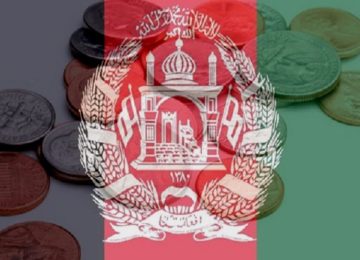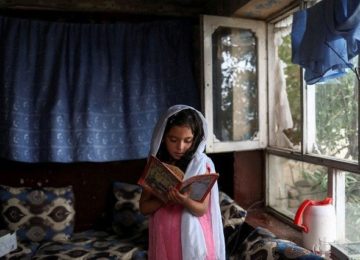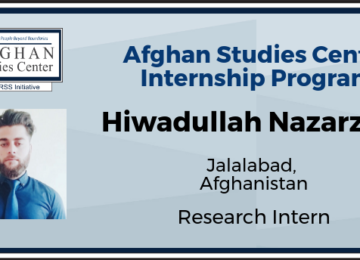Within a week, Afghanistan’s capital was shaken thrice by a sequence of tremendous terrorist attacks on the core government institutions. The Intercontinental Hotel siege followed by massive suicide attack at the gate of old Ministry of Interior and attack on a military base resulted in huge human casualties and property losses. Simultaneously, “Save the Children” charity organization in Nangarhar also was besieged by IS fighters which claimed dozens of lives. This series of attacks traumatized public once again and the angry mob protested for reconsideration of security strategy and questioned American presence in the country. Afghan war has been titled as the longest war in the US history after Vietnam. This endless stalemate now has got new dimensions and created a puzzle with ambiguous clue.
US engagement in Afghanistan has been speculated as an intensifier of insecurity in the country. Pentagon seems to have no intention of putting an end to Afghan conflict and apparently United States is playing double game to maintain status quo in the region. United States’ policy towards Afghanistan for 16 years has not been nation-building, but interest-seeking. United States invaded Afghanistan to root out safe havens of al-Qaeda for its own national security. Currently, it looks like that United States is confining transnational terrorist organizations to a specific area and averts their attention from US soil to a more in-house atmosphere.
So far, United States has spent 100 billion dollars in its so called war on terror. Thousands of civilians and military personnel of Afghanistan have lost their lives in this war. Endless suicide attacks have taken place and massive injuries have been recorded. Perhaps, this strategic scandal resembles US disgraceful military engagement in Vietnam.
Afghan people are now helpless, Thanks to the devastated economy and rift among political leaders. In the past 16 years, huge volumes of international aid flowed to rehabilitate war-torn Afghanistan. Due to corruption and weak bureaucratic structure, the management and utilization of these funds were challenged and minor attention was focused on enduring economic projects. At present, the Afghan government institutions and armed forces are financed by United States and other international donors. President Ghani confirmed immediate collapse of government if US withholds its funds.
The US strategic ambitions combined with terrorism have created a complicated scenario in front of Afghanistan’s progress. Pentagon has recently barred Special Inspector General for Afghanistan Reconstruction (SIGAR) not to disclose data about the number of districts controlled either by government or Taliban. But according to former CIA agents, Taliban are now more successful of all time as they have increased their control to 15% in 2017. Since the inception of Afghan war in 2001, United States has deliberately paid less attention on improvement of democracy, economic development, productive infrastructures and effective financial institutions. Obviously, economy of a country has direct effect on the military power. Two weeks ago Afghan parliament passed national budget for 2018 fiscal year. It allocated $5.128 for both administrative spending and development programs. Only $2.3 billion is derived from domestic resources while $2.7 billion come from foreign aid.
This dilemma is regarded to be inevitable for Afghan people. Inflexible attitude of political parties along with ethnic lines make things worse in the country. Presumably, evacuation of US troops from Afghanistan once again will create a power vacuum repeating 1990s tragedy. After Hekmatyar’s peace deal with government, political rift between Northern Alliance (Jamia’t Islami) and Hizb-e-Islami once again revived. It seems that new alliances are to be constructed and amid complete withdrawal of US forces the country will be thrown to the brink of another civil war. The incomplete Disarmament, Demobilization, and Reintegration (DDR) initiative could not completely disband military wings of these parties and their weaponry stockpiles still remain intact.
The 16 years status quo will change once economic infrastructure is improved and political parties consider national interest the foremost goal of their acts. Moreover, the present dynamics of Afghanistan once again reinforces that reality that only sustainable solution is seeking it through Afghan owned political approach.
The author Ejaz ul Haq Ateed is a Research Intern at the Center of Research and Security Studies (CRSS), Islamabad. He is pursuing MS in International Relations at International Islamic University, Islamabad (IIUI). His areas of interest include Afghan affairs, South Asia and Middle East. He belongs to Badakhshan, Afghanistan.
© Center for Research and Security Studies (CRSS) and Afghan Studies Center (ASC), Islamabad.








